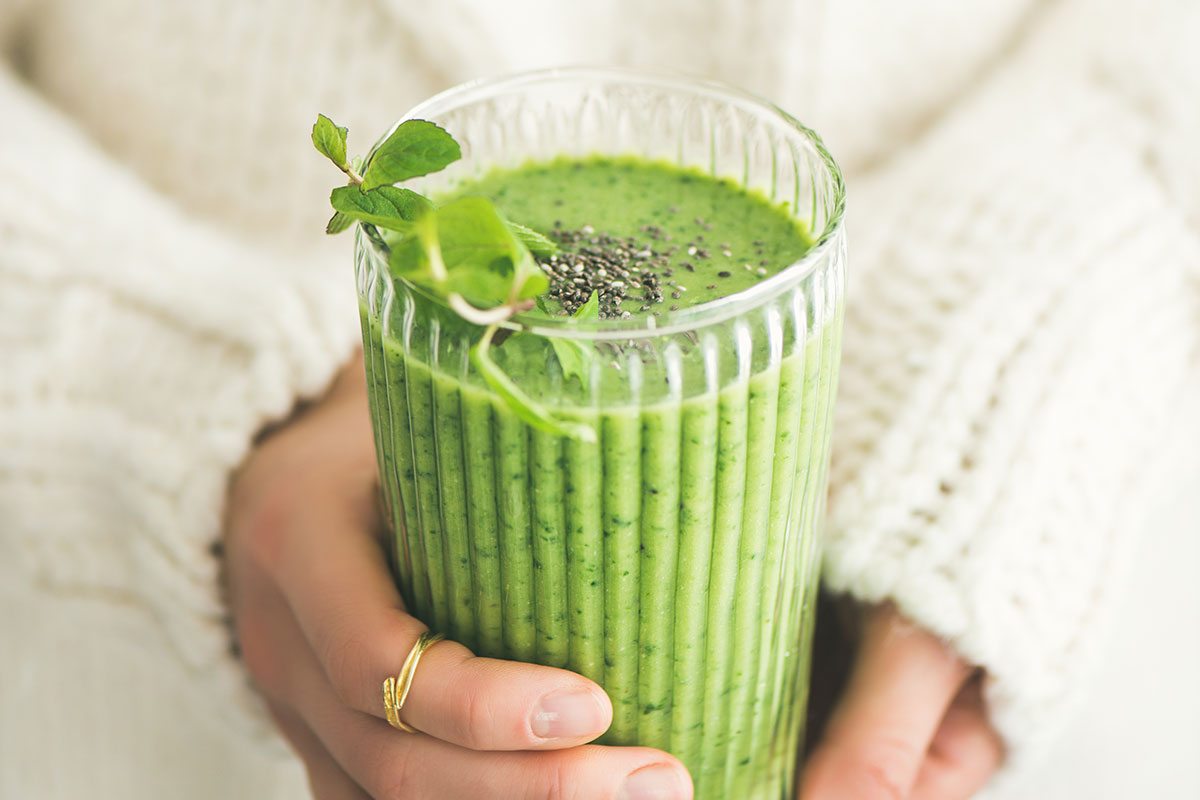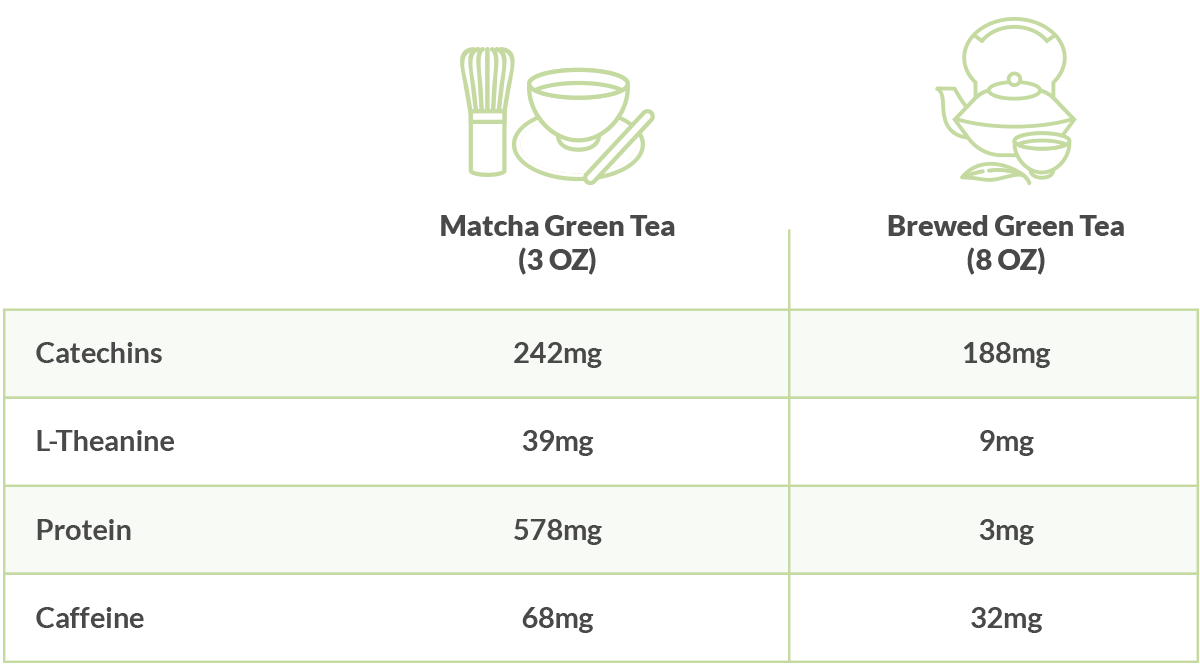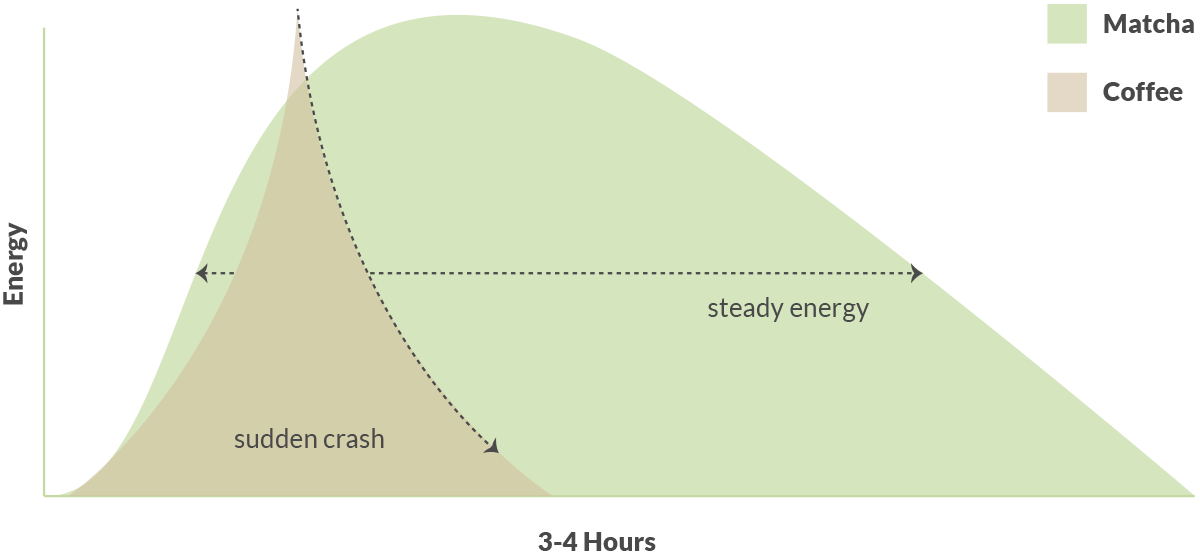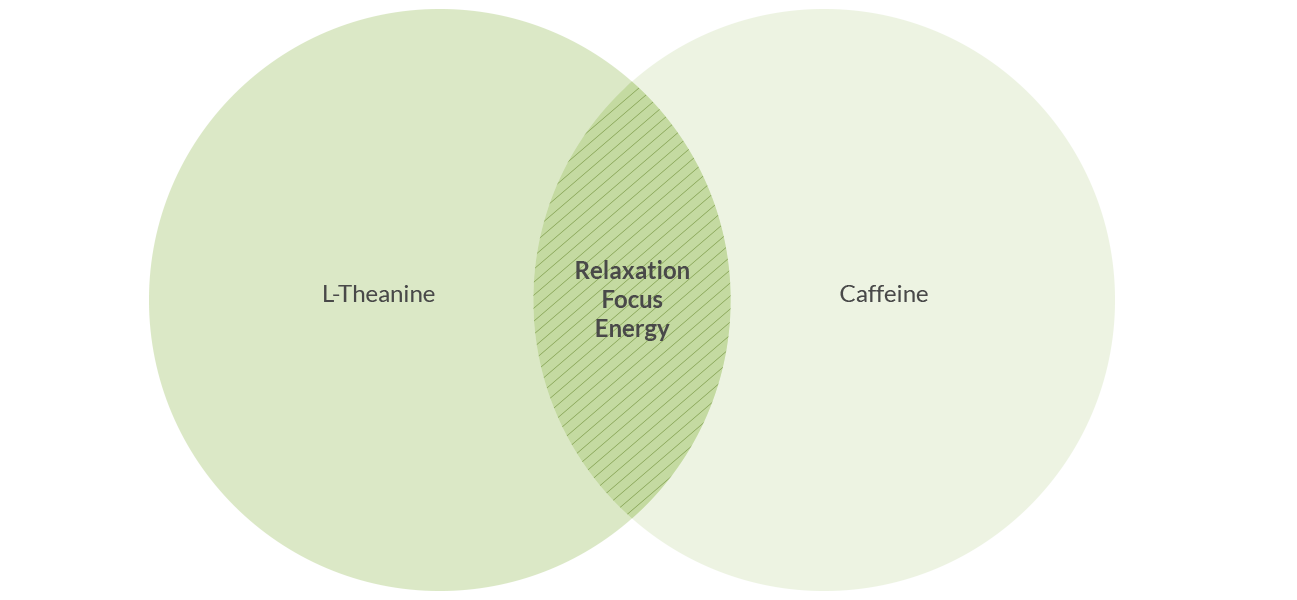
Matcha’s nutritional and health benefits include weight loss, anti-oxidation, cell damage prevention, and detoxification. Matcha’s high content of dietary fiber (385mg/g) can stabilize blood sugar levels and even promote regular bowel movements. Studies have even shown that matcha’s antioxidants and other nutritional properties can help lower cholesterol, increase energy levels naturally, and improve focus and relaxation.

Ceremonial grade matcha’s antioxidants are probably the key to all its wonders. Each matcha green tea leaf is packed with catechins, strong antioxidants closely linked to cell damage prevention. Catechins neutralize free radicals in the body, battle oxidation, and improve the immune system.
Matcha’s nutritional properties also include a high concentration of EGCG (epigallocatechin gallate), one of the most powerful catechins in food. It contains17.5mg/g of EGCG versus 0.05mg/g of EGCG found in green tea. This high dose of EGCG is one of the reasons why matcha is linked to cancer prevention. Studies have shown that EGCG may protect cells from DNA damage and inhibit tumor cell development. The detoxification process caused by matcha’s antioxidants also helps prevent heart disease, strokes, arthritis, and other inflammatory conditions.
Catechins in matcha are also linked to weight loss and body fat reduction. They boost metabolism and increase the amount of fat and calories burnt during exercise. Matcha nutritional supplements are also a great post-workout choice because they help to speed up recovery after high-intensity workouts.
The benefits of matcha green tea don’t stop there. Since matcha green tea leaves are shaded before harvesting, they have a concentrated amount of chlorophyll which works as a natural detox, helping remove heavy metals and harmful toxins from the body. Matcha’s nutrition promotes cleaner and healthier skin, helps prevent wrinkles, and has even been tried in acne treatments.

It’s no secret that part of matcha’s nutritional value comes from its caffeine. Because the tea leaf is powdered, matcha has a higher concentration of caffeine per cup than regular brewed green tea; in fact, it’s almost twice as strong! The good news is that matcha has less caffeine than regular coffee and way less than any other energy drink. To get an idea, a cup of bagged green tea has about 32mg of caffeine, one teaspoon of ceremonial grade matcha has 68mg, and a regular cup of coffee has 94mg. Depending on the brand, energy drinks can contain about 160mg of caffeine or more.
Also, when matcha is whisked with hot water, caffeine is released very slowly. The gradual caffeine release results in a long-lasting and sustained energy boost.

There is a perfect counterpart for caffeine in matcha’s nutritional benefits. Matcha green tea contains a high dose of L-theanine, an amino acid linked to mental alertness, cognition, and relaxation. Studies have found that a dose of matcha L-theanine combined with caffeine creates a ‘“super combo” that can make you feel energized and focused while relaxing your mind and body at the same time. It also improves the production of dopamine and serotonin, the neurotransmitters that help us feel good. It comes as no surprise that matcha is often used by Zen Buddhist monks to enter deeper states of meditation.
Matcha’s nutritional health benefits don't end there. If you take a look at the matcha nutritional facts, you may not believe your eyes! One serving of matcha green tea (½ tsp or 1 gr) contains 306mg of protein, 272mg total amino acids, and 50mg of lipids, amongst other nutrients. It also has minerals such as potassium (27mg), magnesium (2.3 mg) calcium (4.2mg), zinc (.062mg), phosphorus (3.5mg) and iron (.17mg). In only 1gr of powder, you’ll find important antioxidants in matcha including vitamins A, B1, B2, B6, C, E, K, and more than 50% of the daily intake of vitamin A carotene. These numbers are outstanding if we look at the FAO’s (Food and Agriculture Organization of the United Nations) recommendations which indicate that any food whose nutrients provide 20% or more of the recommended daily intake provides a “high nutritional value” to the consumer.
Adding matcha and matcha’s antioxidants to your diet can not only boost the flavor of your favorite drinks but your nutritional benefits as well. Explore Keicha Tea World for high-quality bulk tea and discover all of matcha uses today! Contact us today for more information and a free quote on our high-quality, bulk matcha tea.